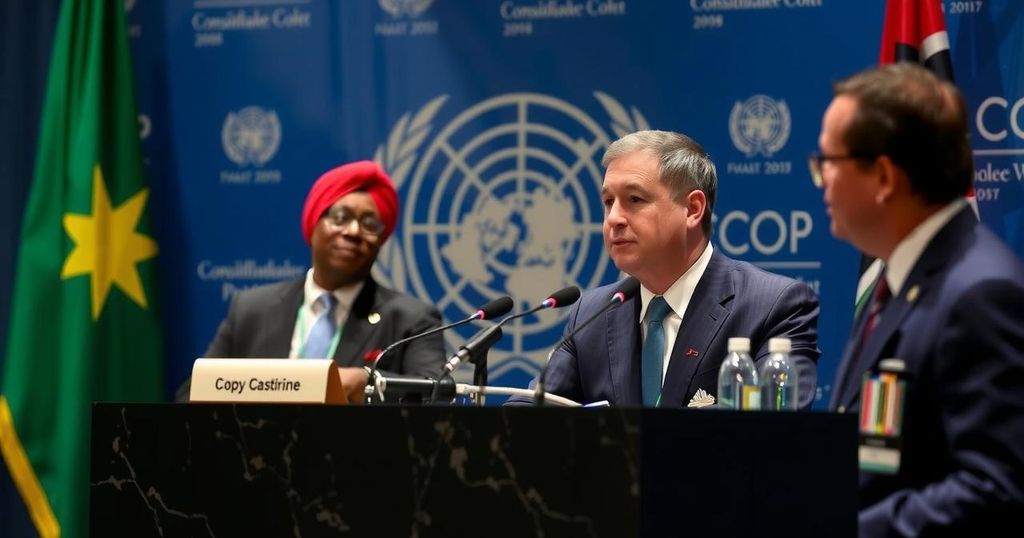Developing Nations Criticize COP29 Climate Deal as Insufficient

At COP29, a climate deal was reached, pledging US$300 billion annually by 2035 from developed nations. However, this amount was strongly criticized by developing countries, seen as inadequate in light of their dire climate challenges. Notable objections came from India and Sierra Leone, which labeled the commitment as unacceptably low, highlighting the ongoing tension in international climate negotiations.
At the conclusion of the COP29 summit in Azerbaijan, a climate deal was ratified, but the commitment of US$300 billion annually by 2035 from wealthy nations was met with widespread disapproval by developing countries. Representatives from various nations expressed their disappointment, characterizing this pledge as insufficient to address the climate crisis. India’s delegate labeled the deal as “abysmally poor,” while Sierra Leone and Nigeria also condemned it as a sign of lack of commitment from affluent nations. Despite hopes for a higher financial commitment, the final agreement fell short of the needed $390 billion suggested by experts, leaving many developing countries dissatisfied yet without a unified front to reject the deal entirely. UN Secretary-General Antonio Guterres acknowledged the shortfalls of the agreement, expressing hope for a more ambitious resolution to the climate emergency. Inquiries into the necessity for substantial financial backing from developed countries to combat climate challenges underscored the ongoing inequities faced by the less affluent nations.
The article discusses the aftermath of the COP29 climate summit and the contentious negotiations surrounding financial commitments to address climate change. Developing nations, which suffer disproportionately from climate impacts, were hoping for much larger financial support than the US$300 billion pledge ultimately agreed upon. This pledge, perceived as inadequate by many representatives from poorer countries, highlights the ongoing tension between developed and developing nations regarding responsibilities for climate finance and action. The importance of moving towards a target that can effectively combat global warming remains a significant concern, especially as global temperatures approach critical thresholds.
In summary, the outcome of COP29 has ignited intense criticism from developing nations regarding the inadequate financial commitments proposed by wealthy countries to tackle climate change. Despite the ratification of a deal, many representatives indicated that the plaudits from wealthier nations were hollow given the perceived insufficiency of the agreed-upon funds. Calls for increased financial contributions persist, as existing pledges do not meet the urgent demands of vulnerable nations facing the brunt of climate disasters. The summit ultimately reflected the discontinuities in global responsibilities towards climate change action and the pressing need for a more equitable approach to climate finance.
Original Source: www.taipeitimes.com






